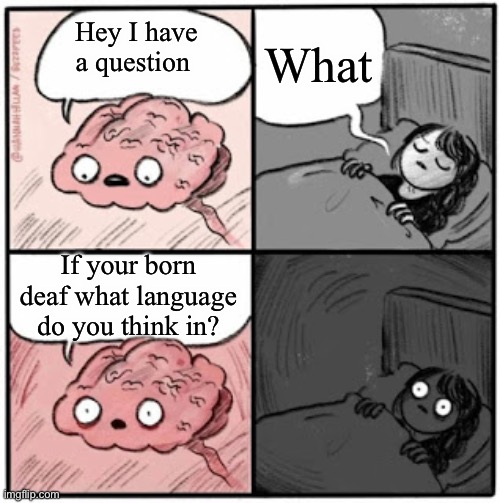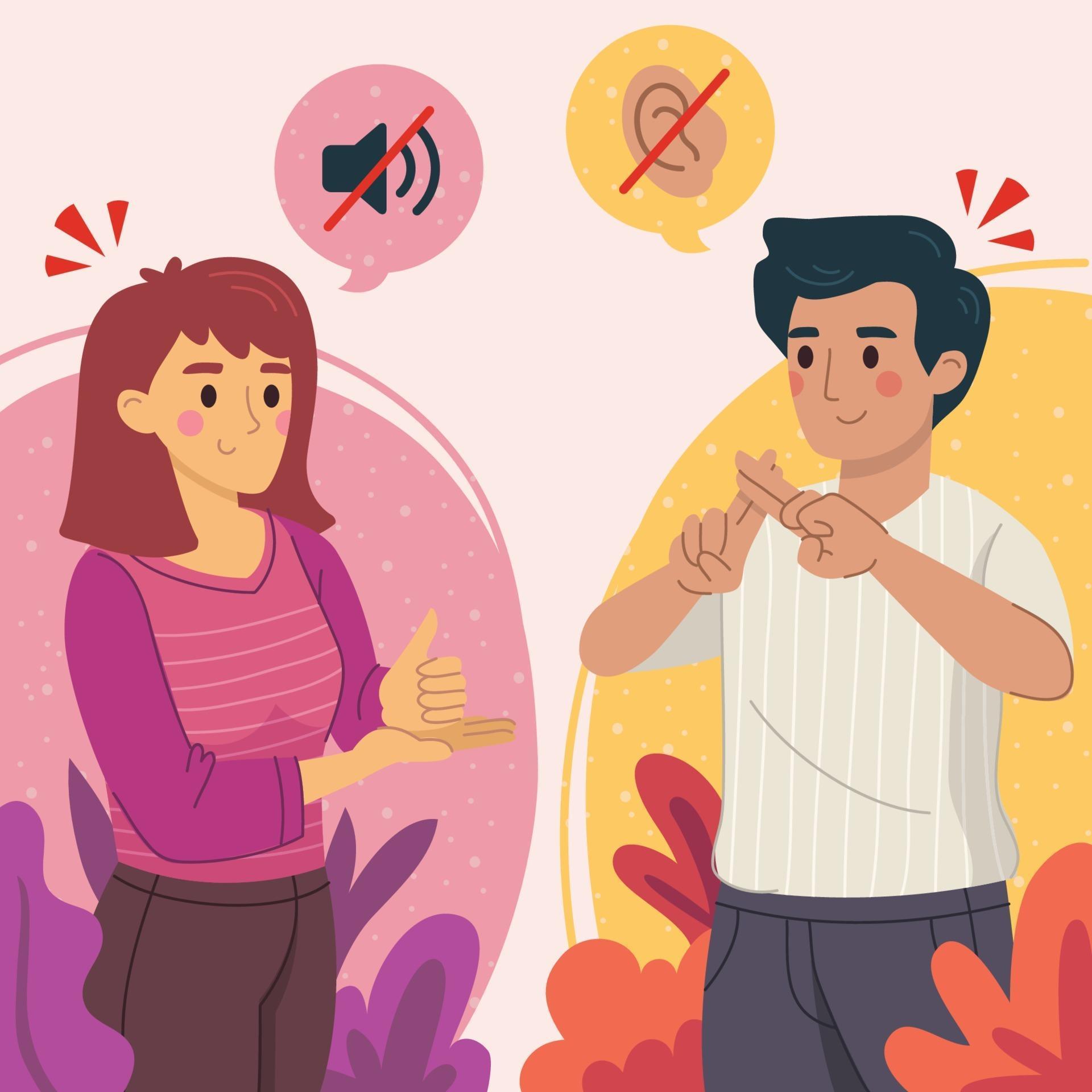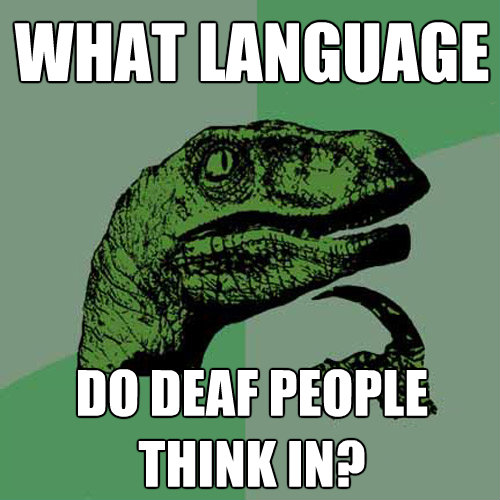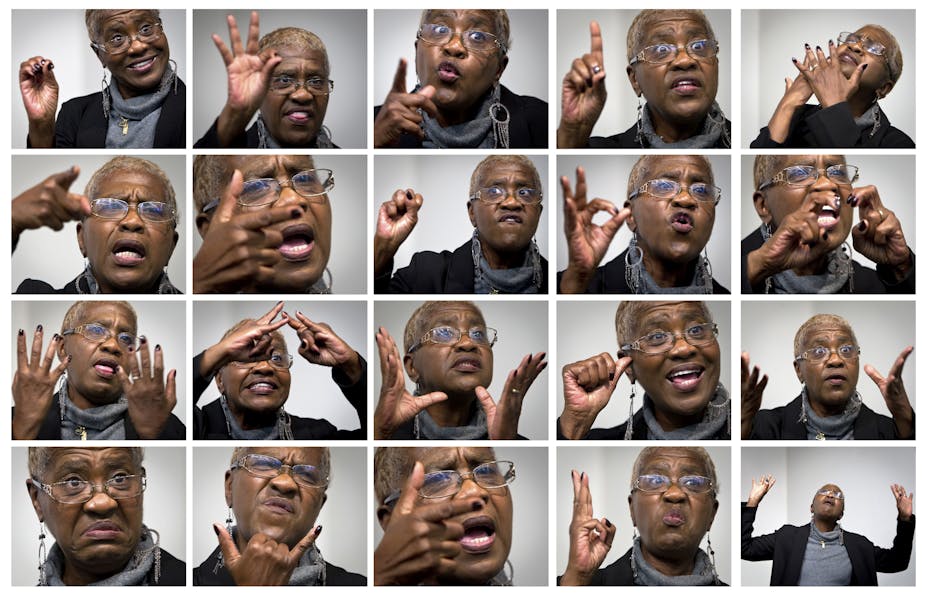What Language Do Deaf People Think In?
Have you ever wondered what language deaf people think in? It’s a fascinating question that opens up a world of understanding and insight into the inner workings of the deaf community. In this article, we will explore the concept of language thinking for deaf individuals and shed light on their unique experience.
The Significance of Language Thinking for Deaf Individuals
When considering the language deaf people think in, it is important to touch on the challenges they face due to their hearing impairment. Unlike individuals who are able to hear, deaf people do not have access to spoken language from birth. This sets the stage for a different thinking process that primarily relies on visual and spatial cues.
Answering the Question: What Language Do Deaf People Think In?
Deaf people predominantly think in sign language, which is their primary mode of communication. Sign language is a rich and expressive language that allows deaf individuals to convey their thoughts, emotions, and ideas. It is a visual-spatial language that uses hand movements, facial expressions, and body language to communicate.
Article Summary
In summary, when contemplating what language deaf people think in, it is crucial to understand the significance of sign language as their primary mode of expression. Deaf individuals predominantly think in sign language, which is a visual-spatial language using hand movements, facial expressions, and body language.
The Role of Sign Language in Deaf Individuals’ Thinking Process
Sign language plays a vital role in the thinking process of deaf individuals. It serves as their main form of communication, enabling them to express their thoughts, feelings, and desires effectively. For deaf people, thinking in sign language is not just about using hand gestures; it involves a deep connection between their visual perception and cognitive understanding.
Considering the question of what language do deaf people think in, it is necessary to acknowledge the personal experiences of individuals within the deaf community. Many deaf individuals are raised using sign language from an early age, and it becomes their primary language for communication and thinking. Thinking in sign language allows them to seamlessly process information and engage in meaningful conversations within their community.
Furthermore, thinking in sign language provides a unique perspective and deeper understanding of the world for deaf individuals. It allows them to navigate their surroundings, express their thoughts with precision, and develop a sense of identity within their cultural and linguistic community.

Tips for Understanding the Language Thinking of Deaf People
1. Educate yourself about sign language: Learning even basic signs can greatly enhance your ability to communicate and understand deaf individuals’ thinking process.
2. Use visual cues and body language: When interacting with a deaf person, utilize visual cues and body language to enhance understanding and engagement.
3. Engage in inclusive conversations: Encourage inclusive conversations by involving both deaf and hearing individuals, creating an environment for mutual understanding and respect.

About the Deaf Community’s Perspective
The perspectives of deaf individuals and the deaf community as a whole are essential in understanding the language thinking process. Their experiences provide valuable insights into the unique cognitive abilities and cultural identity associated with thinking in sign language.

Featured Sign Language Figures
Throughout history, numerous individuals have made significant contributions to the development and recognition of sign language. These figures have played an important role in raising awareness about the language thinking of deaf people and advocating for the rights and inclusion of the deaf community.

Share a Personal Opinion on the Benefits of Thinking in Sign Language
Thinking in sign language offers numerous benefits to deaf individuals. It fosters clear communication, strengthens their cultural identity, promotes inclusivity, and provides them with a unique perspective on the world.

Comparison: Thinking in Sign Language vs. Thinking in Spoken Language
When comparing thinking in sign language to thinking in spoken language, it is important to recognize the distinct characteristics and advantages of each system. Sign language enables deaf individuals to engage in visual-spatial thinking and express their thoughts with precision, while spoken language relies on auditory input and vocalization.
Fact: Deaf People Primarily Think in Sign Language
It is a fact that deaf individuals primarily think in sign language. Sign language plays a crucial role in their cognitive development, communication, and overall thinking process. By understanding and appreciating this fact, we can promote inclusivity, equal opportunities, and a better understanding of the deaf community.
Conclusion
In conclusion, the language thinking of deaf people revolves around sign language. Sign language is their primary mode of communication, allowing deaf individuals to effectively express their thoughts and engage in meaningful conversations. By acknowledging the importance of sign language in their thinking process, we can foster inclusivity and promote a better understanding of the deaf community.
Question and Answer about What Language Do Deaf People Think In
Q1: Is it possible for deaf people to learn and think in spoken language?
A1: Yes, some deaf individuals may learn to speak and think in spoken language if they receive extensive speech therapy and early intervention. However, sign language remains their primary mode of communication and thinking.
Q2: How does thinking in sign language affect the cognitive abilities of deaf individuals?
A2: Thinking in sign language enhances the cognitive abilities of deaf individuals, particularly in visuospatial processing and visual memory. It allows them to develop a unique perspective and understanding of the world.
Q3: Can deaf individuals think in multiple sign languages?
A3: Yes, deaf individuals can think in multiple sign languages if they have been exposed to and have proficiency in these languages. Just like spoken language speakers who can think in multiple languages, deaf individuals have the ability to switch between sign languages.
Q4: Does thinking in sign language affect the education and learning of deaf individuals?
A4: Thinking in sign language positively impacts the education and learning of deaf individuals. It provides them with a strong foundation for acquiring knowledge, engaging in meaningful interactions, and expressing their thoughts effectively.
If you are searching about in what language do deaf people think? – Philosoraptor – quickmeme you’ve came to the right web. We have 10 Images about in what language do deaf people think? – Philosoraptor – quickmeme like what language do deaf people think in – Philosoraptor, Pin by 🇦🇺🇦🇺🇦🇺Angela Turra on Deaf sign and Deaf people | British sign and also What Language Do Deaf People Think In? – Daily Amazing Things. Here you go:
In What Language Do Deaf People Think? – Philosoraptor – Quickmeme

www.quickmeme.com
quickmeme deaf
Deaf People Communicating Through Sign Language 3240746 Vector Art At

www.vecteezy.com
deaf communicating vecteezy
What Language Do Deaf People Think In – Philosoraptor

www.quickmeme.com
deaf meme philosoraptor language think people creator make memes
What Language Do Deaf People Think In? – Sign Station

signstation.org
What Language Do Deaf People Think In? – Daily Amazing Things

dailyamazingthings.com
deaf multibriefs
What Language Do Deaf People Think In – Imgflip

imgflip.com
1500+ Short Funny Quotes | Funny Life Quotes | Cool Funny Quotes

www.coolnsmart.com
Pin On Linguistics

www.pinterest.com
deaf thelanguagenerds
What Is Sign Language?

signingintheschool.blogspot.com
Pin By 🇦🇺🇦🇺🇦🇺Angela Turra On Deaf Sign And Deaf People | British Sign

www.pinterest.com
language sign british alphabet bsl fingerspelling deaf learn makaton spelling asl people finger communicate chart charts handed left hand english
What is sign language?. Deaf communicating vecteezy. 1500+ short funny quotes



